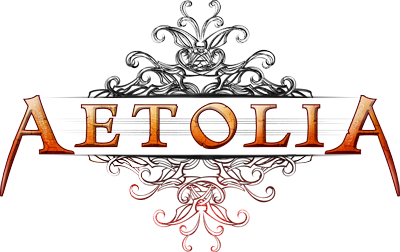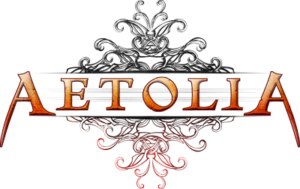18.2.1 Blackjack
Ahhh! Blackjack, the king of table games. The one casino game where skill can
play a significant role. In order to play blackjack in Aetolia, you must first
find a blackjack table (located in all the major cities) and then simply type
PLAY BLACKJACK. When prompted to bet, simply BET <number> GOLD. You will be
prompted for all other necessary input. When you wish to quit, simply type
LEAVE TABLE.
Specifics of Blackjack in Aetolia
--------------------------------
- If none of these make sense to you, see the Rules of Blackjack, below.
- Minimum bet: 2 gold.
- Insurance costs half your original bet, and pays 2:1.
- The value of your hand, as reported to you, will always value aces at
your best advantage. Keep in mind that if that best advantage is an 11,
you still have the option of valuing the ace at 1.
- Dealer stands on soft 17.
- Doubling after a split is allowed.
- There is no surrender option. (Surrender is for the weak!)
- When you LEAVE TABLE, you will be presented with a summary of your
winnings or losses.
- When asked what you want to do, you simply follow the prompt. For example,
you can HIT or STAND. You do not need to reply aloud.
The Rules of Blackjack
----------------------
Card Values
-----------
The cards from 2 through 9 are valued as indicated.
The 10, Jack, Queen, and King are all worth 10.
An Ace can count as either 1 or 11.
The suits of the cards are irrelevant.
How much a hand is worth (ie its value) is simply the sum of the points each
card is worth. For instance, if you had a hand with 8, 3, and 6, it'd be worth
17. If you have an Ace, a 10, and a 5, you COULD either have 26 (11+10+5) but
it is assumed that you have 16 (1+10+5). Remember, Aces can be either 1 or 11.
It's up to you.
If a hand has an Ace in it that can be counted as either 1 or 11 without the
total going over 21, it's called a 'soft' total. So, for example, a 7 and an
Ace together would be a soft 18.
Dealing the cards
-----------------
Once all the bets are made, the dealer will deal the cards to the players.
He'll deal two cards to each player, both face-up, and then deal himself one
card face-down and one card face-up. The face-down card is called the 'hole'
card.
Once the cards are dealt, the each player will be asked in turn what he or she
wants to do. You can 'hit' (get another card), 'stand' (take no more cards),
'split' (if you have pairs...more on that later), or 'double' (again, more on
that later.) Once all players have finished, the dealer will play out his hand.
He will first flip up his hole card, and if it gives him less than 16, he will
continue to draw cards until he has over 17 or over.
When the dealer is finished, those players who did not already bust (ie go over
21) will win at 1:1 if they have more than the dealer. Having the same as the
dealer merely returns your bet, and having less than the dealer means you lose
your bet. The exception to this is blackjack. If you get dealt a card worth 10
and an ace, you are said to have 'blackjack' (as opposed to just having 21),
and as long as the dealer does not also have blackjack, you will get paid at
3:2 rather than 1:1.
It is important to understand that the dealer makes no decisions. What he does
is completely determined by what cards he is dealt.
What a player can do
--------------------
Hitting and Standing
- As discussed before, you can keep hitting (ie getting another card) until
you bust (ie go over 21). You stand when you do not want any more cards.
Doubling Down
- When a hand only has two cards in it, you can choose to double down. What
this means is that you double your bet, but you will receive one and only one
more card. You must receive that card too.
Splitting Pairs
- If you have two and only two cards in a hand that are worth the same (for
instance, all face cards and 10s count as the same), then you may choose to
split your pair. What this does is take one of the cards from your existing
hand and move it into a new hand. Then each of your two hands are dealt a new
card. You also must pony up the same bet for the new hand as the old one. Your
hands are then played out separately.
Insurance
- If the dealer's original up-card is an ace, you will be offered the chance
to buy insurance. Insurance costs half your original bet, but if the dealer has
blackjack, then you will get your insurance bet back at 1.5:1. So, unless you
also have blackjack, a successful insurance bet means that you lose nothing. If
you do have blackjack, a successful insurance bet means that you end up winning
1.5:1 on your original bet.
